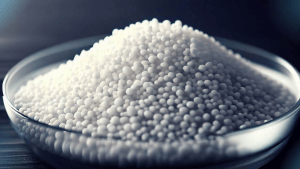What can I substitute for Saltpeter?
Are you looking for a substitute for Saltpeter? Saltpeter is one of those ingredients that is difficult to find. So if you need a suitable substitute we suggest using Celery Powder or Celery Juice, Prague Salt, Sea Salt, Beet Juice or Iodized Salt.
What is Saltpeter?
Saltpeter, (saltpetre) also known as potassium nitrate, is a white, crystalline compound that has been used for centuries in cooking and preserving food. It is a natural preservative that helps to inhibit the growth of bacteria and mold, which can cause food to spoil. Saltpeter is also used to give cured meats their characteristic flavor and color.
In cooking, saltpeter is most commonly used in the preparation of corned beef, bacon, and other cured meats. It is also used in some recipes for sauerkraut and pickles. Saltpeter can be added to brines or directly to meat, depending on the recipe.
When using saltpeter in cooking, it is important to follow the recipe carefully, as too much saltpeter can give food a bitter taste. It is also important to note that saltpeter is not a substitute for salt, and both ingredients should be used in recipes.
Here are some tips for using saltpeter in cooking:
- Use a mortar and pestle to grind saltpeter into a fine powder before adding it to food. This will help to ensure that the saltpeter is evenly distributed.
- If you are using saltpeter to cure meat, be sure to soak the meat in brine for several days before cooking. This will help to draw out the moisture and allow the saltpeter to penetrate the meat.
- If you are using saltpeter in a recipe for sauerkraut or pickles, be sure to add it to the brine at the beginning of the fermentation process. This will help to prevent the growth of harmful bacteria.
Okay, before we look at your Saltpeter substitute options, let’s deal with that empty cupboard situation!
Where can I buy Saltpeter
Well, we did say it was difficult to get a hold of and we couldn’t come up with one that we were happy to suggest. However, we have manged to track down some Prague Powder which we are happy to recommend to you.
Here is an on-line link for a large 1 lb loaf of Prague Powder Curing Salt.
So why not jump on and place your order today.
STOCK UP NOW!
Premium Curing Salt – Prague Powder
Prague Powder – Curing salt – with a pink tinge to help with color and flavor.
Organic and Kosher friendly. Sodium nitrate for curing meats.
What can I substitute for Saltpeter
Here are some of the best ingredients to substitute the flavor and role that Saltpeter provides in your recipes.
- Celery powder or Celery Juice
- Prague Salt
- Sea Salt
- Beet Juice
- Iodized Salt
Saltpeter substitutes
Celery Powder or Celery Juice
Celery powder or celery juice can be used as a substitute for saltpeter in some recipes. Celery contains naturally occurring nitrates, which can help to preserve meat and give it a pink color.
Celery powder is a good option if you want to use a natural curing agent. It has a strong celery flavor, so you may need to use less of it than you would saltpeter.
Celery juice is also a good option, but it is important to note that it is not as stable as saltpeter and may degrade over time. As a result, it is not a good choice for long-term curing.
If you are using celery powder or celery juice as a substitute for saltpeter, you can use it at a 1:1 ratio. This means that if a recipe calls for 1 teaspoon of saltpeter, you can use 1 teaspoon of celery powder or celery juice instead.
It is important to note that celery powder and celery juice will not give your cured meats the same level of preservation as saltpeter. However, they can still be used to add flavor and color to your cured meats.
Here are some safety considerations when using celery powder or celery juice as a substitute for saltpeter:
- Celery powder and celery juice contain nitrates, which can be harmful in large quantities. It is important to use them in moderation.
- Celery powder and celery juice can stain, so it is important to use gloves and a cutting board when handling them.
Overall, celery powder and celery juice can be good substitutes for saltpeter in some recipes. However, it is important to be aware of the limitations of these substitutes and to use them in moderation.
Here are some additional tips for using celery powder or celery juice as a substitute for saltpeter:
- Use fresh celery powder or celery juice. Celery powder or celery juice that has been stored for a long time may not have as much nitrate content.
- Add the celery powder or celery juice to the brine early in the curing process. This will give the nitrate time to react with the meat and create the desired flavor and color.
- Taste the brine regularly to make sure that it has the desired flavor. You may need to add more celery powder or celery juice if the flavor is not strong enough.
- Cured meats that have been brined with celery powder or celery juice may have a slightly pink color. This is perfectly normal and does not mean that the meat is unsafe to eat.
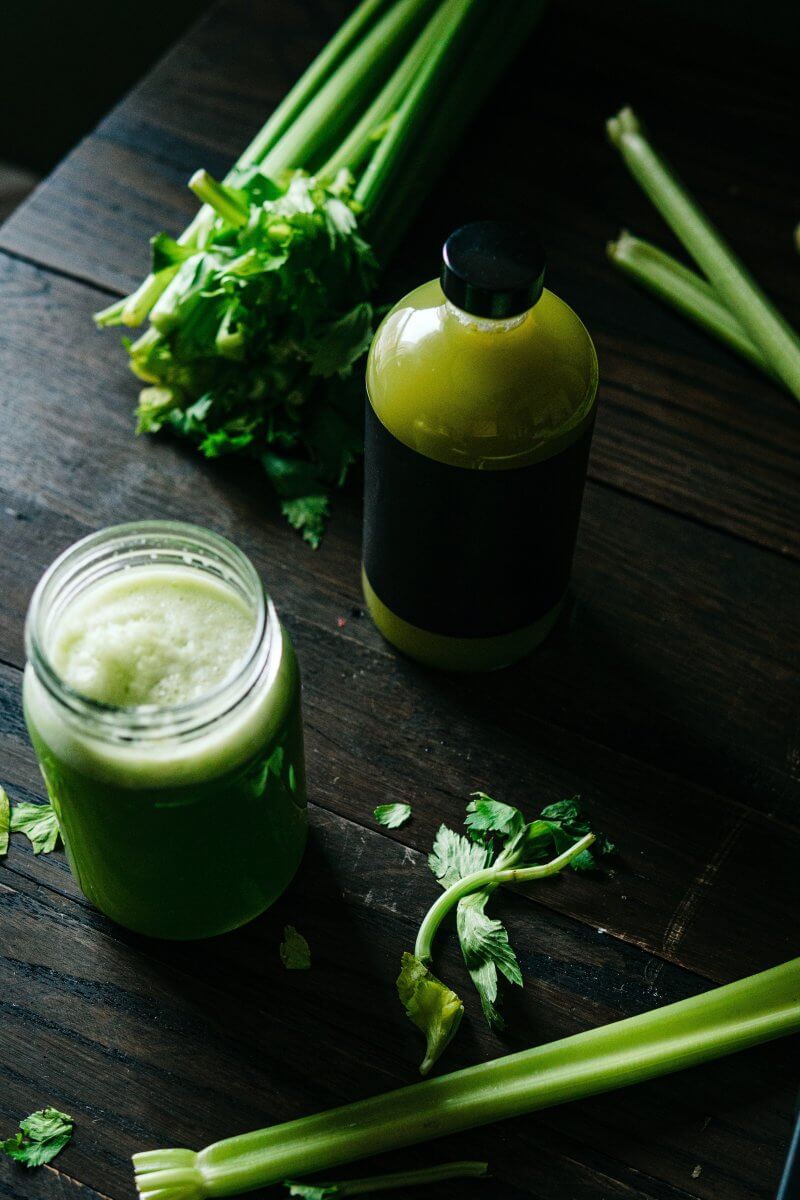
Prague Salt as a substitute for Saltpeter
Prague salt can be used as a substitute for saltpeter in some recipes. It is a type of curing salt that contains both sodium nitrite and sodium nitrate. Saltpeter is a mineral that contains only potassium nitrate.
The main difference between Prague salt and saltpeter is that Prague salt has a pink color, while saltpeter is white. This is because Prague salt contains sodium nitrite, which gives it the pink color. Sodium nitrite is a necessary ingredient in curing meats, as it helps to prevent the growth of botulism bacteria.
If you are using Prague salt as a substitute for saltpeter, you can use it at a 1:1 ratio. This means that if a recipe calls for 1 teaspoon of saltpeter, you can use 1 teaspoon of Prague salt instead.
It is important to note that Prague salt is a more potent curing salt than saltpeter. This means that you need to use less of it. Remember if you use too much Prague salt, your cured meats may have a bitter taste.
Here are some safety considerations when using Prague salt as a substitute for saltpeter:
- Prague salt is a more potent curing salt than saltpeter, so you need to use less of it.
- Prague salt can be dangerous if ingested in large quantities. It is important to keep it out of the reach of children and pets.
- Prague salt can stain, so it is important to use gloves and a cutting board when handling it.
Overall, Prague salt can be a good substitute for saltpeter in some recipes. However, it is important to be aware of the limitations of Prague salt and to use it in moderation.
Here are some additional tips for using Prague salt as a substitute for saltpeter:
- Use fresh Prague salt. Prague salt that has been stored for a long time may not have as much nitrite content.
- Add the Prague salt to the brine early in the curing process. This will give the nitrite time to react with the meat and create the desired flavor and color.
- Taste the brine regularly to make sure that it has the desired flavor. You may need to add more Prague salt if the flavor is not strong enough.
- Cured meats that have been brined with Prague salt may have a slightly pink color. This is perfectly normal and does not mean that the meat is unsafe to eat.
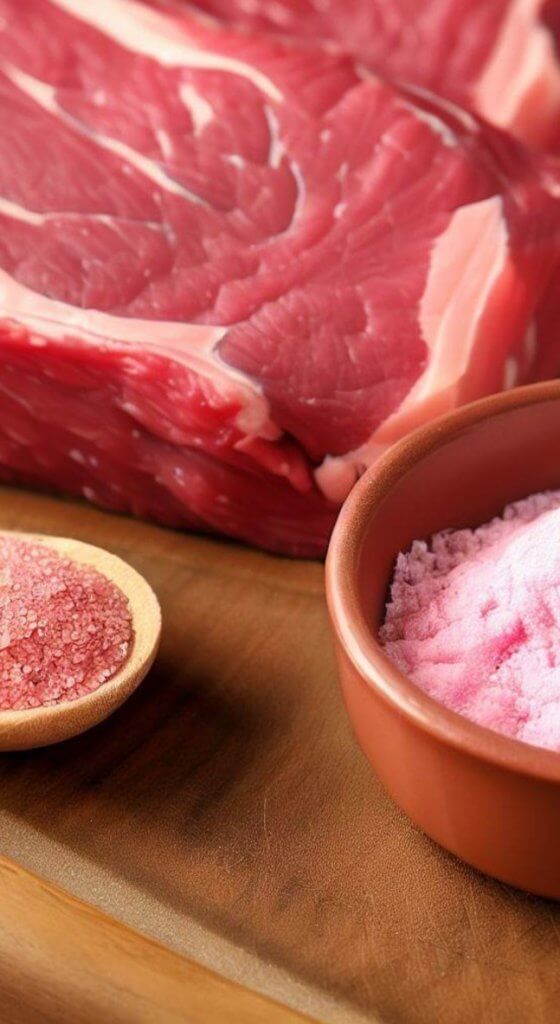
Sea Salt as a substitute for Saltpeter
Sea salt can be used as a substitute for saltpeter in some recipes, but it is important to note that it does not have the same curing properties. Saltpeter is a mineral that contains potassium nitrate, which helps to preserve meat by preventing the growth of bacteria. Sea salt does not contain potassium nitrate, so it will not have the same preservative effect.
However, sea salt can still be used to add flavor and color to cured meats. It is also a good source of minerals, such as magnesium and calcium. If you are using sea salt as a substitute for saltpeter, you will need to use more of it to achieve the same level of flavor.
Here is a general rule of thumb for substituting sea salt for saltpeter:
- 1 teaspoon of saltpeter = 1 tablespoon of sea salt
It is important to note that this is just a general guideline, and the amount of sea salt you need to use may vary depending on the recipe. It is always best to start with a small amount and add more to taste.
Here are some safety considerations when using sea salt as a substitute for saltpeter:
- Sea salt does not contain potassium nitrate, so it will not have the same preservative effect. This means that your cured meats may not last as long.
- Sea salt is a more delicate flavor than saltpeter, so you may need to use more of it to achieve the same level of flavor.
- Sea salt can contain impurities, so it is important to use a high-quality sea salt.
Overall, sea salt can be a good substitute for saltpeter in some recipes. However, it is important to be aware of the limitations of sea salt and to use it in moderation.
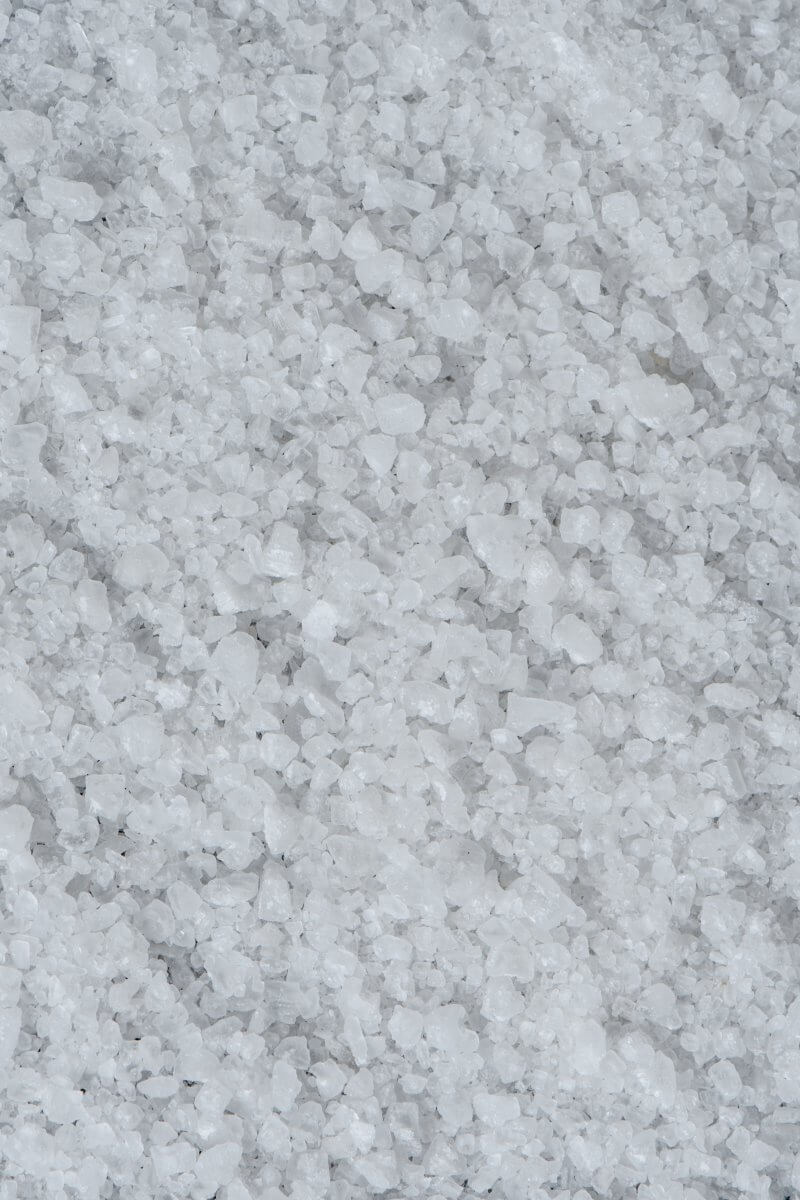
Beet Juice as a substitute for Saltpeter
Beet juice can be used as a substitute for saltpeter in some recipes, but it is important to note that it does not have the same curing properties. Saltpeter is a mineral that contains potassium nitrate, which helps to preserve meat by preventing the growth of bacteria. Beet juice does not contain potassium nitrate, so it will not have the same preservative effect.
However, beetroot juice can still be used to add flavor and color to cured meats. It is also a good source of nitrates, which can help to improve the flavor and texture of cured meats. If you are using beet juice as a substitute for saltpeter, you will need to use more of it to achieve the same level of flavor.
Here is a general rule of thumb for substituting beet juice for saltpeter:
- 1 teaspoon of saltpeter = 1/2 cup of beet juice
It is important to note that this is just a general guideline, and the amount of beet juice you need to use may vary depending on the recipe. It is always best to start with a small amount and add more to taste.
Here are some safety considerations when using beet juice as a substitute for saltpeter:
- Beet juice does not contain potassium nitrate, so it will not have the same preservative effect. This means that your cured meats may not last as long.
- Beet juice can have a strong flavor, so you may need to use less of it than you would saltpeter.
- Beet juice can stain, so it is important to use gloves and a cutting board when handling it.
Overall, beet juice can be a good substitute for saltpeter in some recipes. However, it is important to be aware of the limitations of beet juice and to use it in moderation.
Here are some additional tips for using beet juice as a substitute for saltpeter:
- Use fresh beet juice. Beet juice that has been stored for a long time may not have as much nitrate content.
- Add the beet juice to the brine early in the curing process. This will give the nitrate time to react with the meat and create the desired flavor and color.
- Taste the brine regularly to make sure that it has the desired flavor. You may need to add more beet juice if the flavor is not strong enough.
- Cured meats that have been brined with beet juice may have a slightly pink color. This is perfectly normal and does not mean that the meat is unsafe to eat.
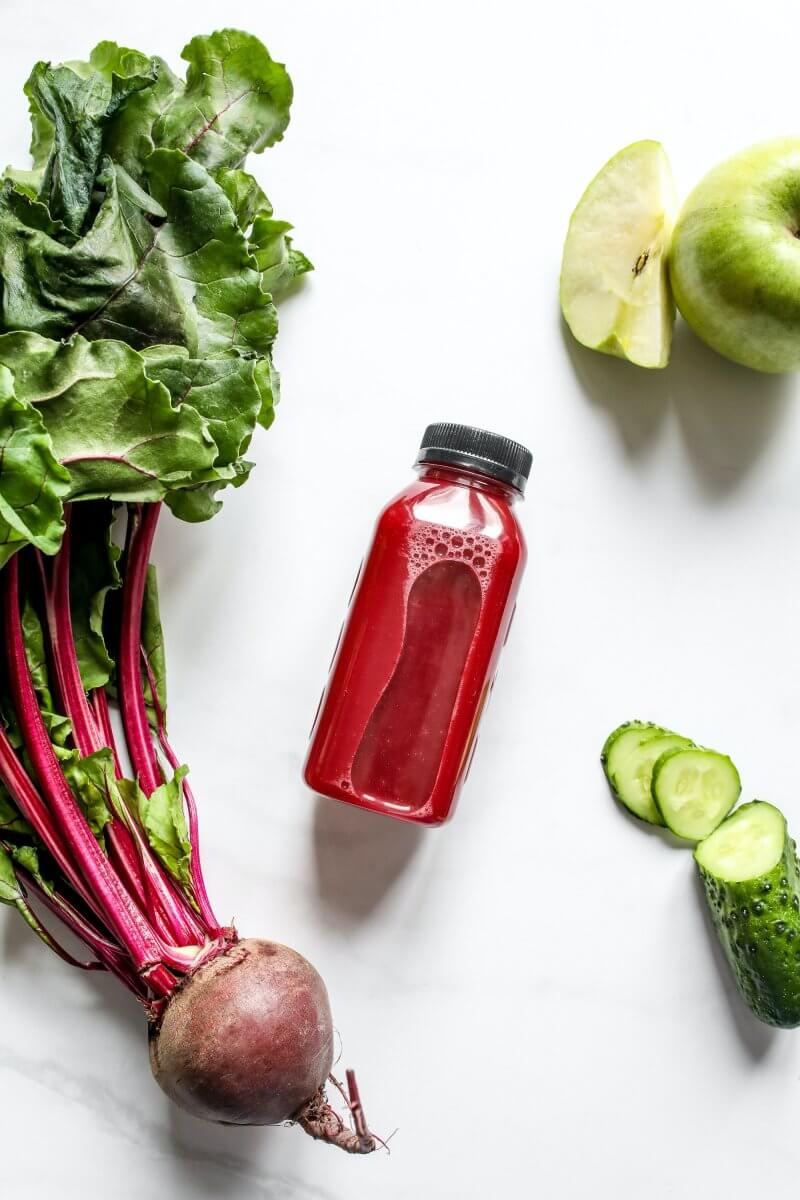
Non-Iodized Salt
Non-iodized salt can be used as a substitute for saltpeter in some recipes, but it is not as effective. Saltpeter is a natural preservative that helps to inhibit the growth of bacteria and mold, while non-iodized salt does not have these same properties.
However, non-iodized salt can still be used to give food a salty flavor and to help draw out moisture. It can also be used to help preserve food, but it will not be as effective as saltpeter.
If you are using non-iodized salt as a substitute for saltpeter, you will need to use more of it. The amount of non-iodized salt that you need to use will depend on the recipe you are using.
It is also important to note that the flavor and color of the food may be slightly different when using non-iodized salt as a substitute for saltpeter.
Here are some tips for using non-iodized salt as a substitute for saltpeter:
- Use a mortar and pestle to grind non-iodized salt into a fine powder before adding it to food. This will help to ensure that the salt is evenly distributed.
- If you are using non-iodized salt to cure meat, be sure to soak the meat in brine for several days before cooking. This will help to draw out the moisture and allow the salt to penetrate the meat.
- If you are using non-iodized salt in a recipe for sauerkraut or pickles, be sure to add it to the brine at the beginning of the fermentation process. This will help to prevent the growth of harmful bacteria.
Overall, non-iodized salt can be used as a substitute for saltpeter in some recipes, but it is not as effective. If you are looking for a more effective substitute, you may want to use celery powder, celery juice, pink salt, or Prague salt.
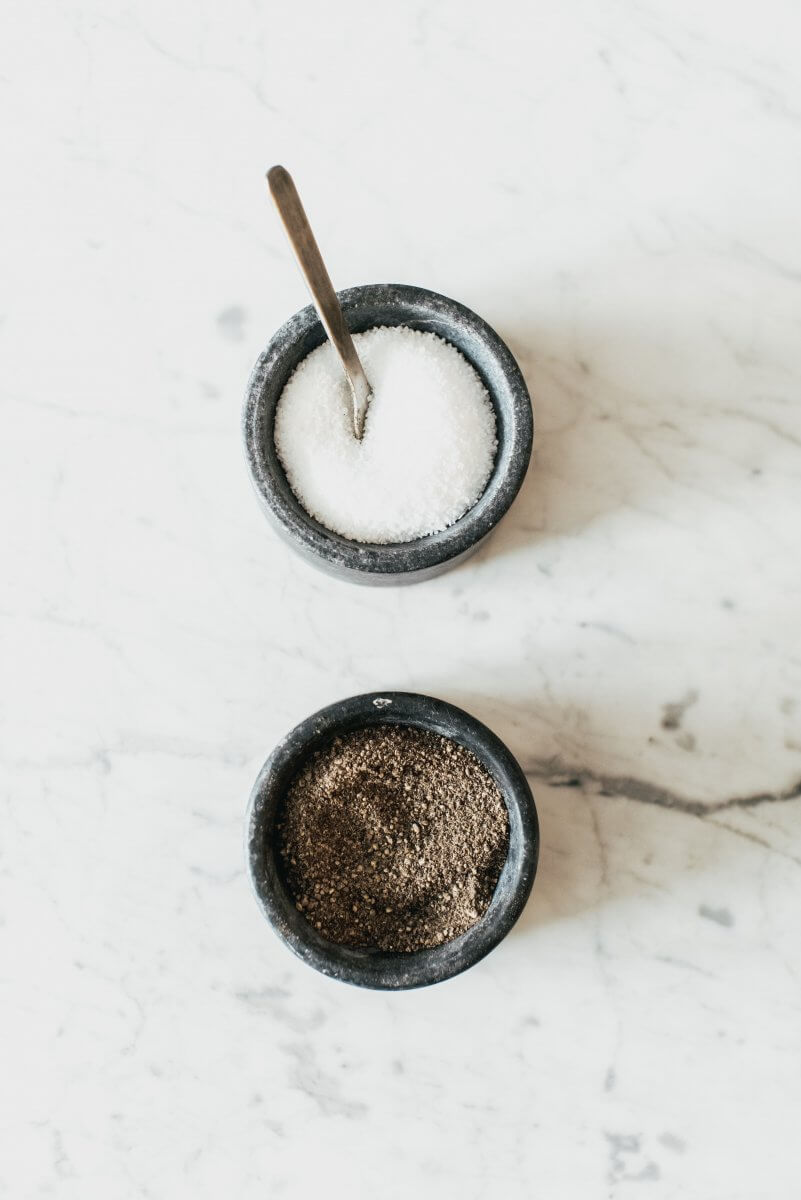
Summary for Saltpeter substitutes
Okay – that’s you all sorted with suitable substitutes for Saltpeter.
We hope you found the suggestions useful. Here is a quick recap.
- Celery powder: Celery powder contains natural nitrates that can help to preserve food. It is a good substitute for saltpeter in recipes for sauerkraut, pickles, and cured meats.
- Celery juice: Celery juice can also be used as a substitute for saltpeter in cooking. It is a good option for those who want a more natural and flavorful substitute.
- Pink salt: Pink salt is a type of sea salt that contains naturally occurring nitrates. It is a good substitute for saltpeter in recipes for cured meats.
- Prague salt: Prague salt is a type of salt that is specifically designed for curing meat. It contains a combination of saltpeter and sodium nitrite. It is a good option for those who want a more traditional and reliable substitute.
- Non-iodized sea salt: Non-iodized sea salt is a good option for those who want a salt substitute that does not contain iodine. It can be used in place of saltpeter in recipes for sauerkraut, pickles, and cured meats.
It is important to note that the flavor and color of the food may be slightly different when using a substitute for saltpeter. However, these substitutes can be used to achieve similar results.
Here is a table comparing the different saltpeter substitutes:
| Substitute | Pros | Cons |
|---|---|---|
| Celery powder | Natural, flavorful | Can be difficult to find |
| Celery juice | Natural, flavorful | Can be messy to work with |
| Pink salt | Naturally occurring nitrates | May not be as effective as saltpeter |
| Prague salt | Traditional, reliable | Contains sodium nitrite, which can be harmful in high doses |
| Non-iodized sea salt | Does not contain iodine | May not be as effective as saltpeter |
Ultimately, the best saltpeter substitute for you will depend on your personal preferences and the recipe you are using.
If you would like to learn about other ingredients you can swap out in our Substitutes section.
